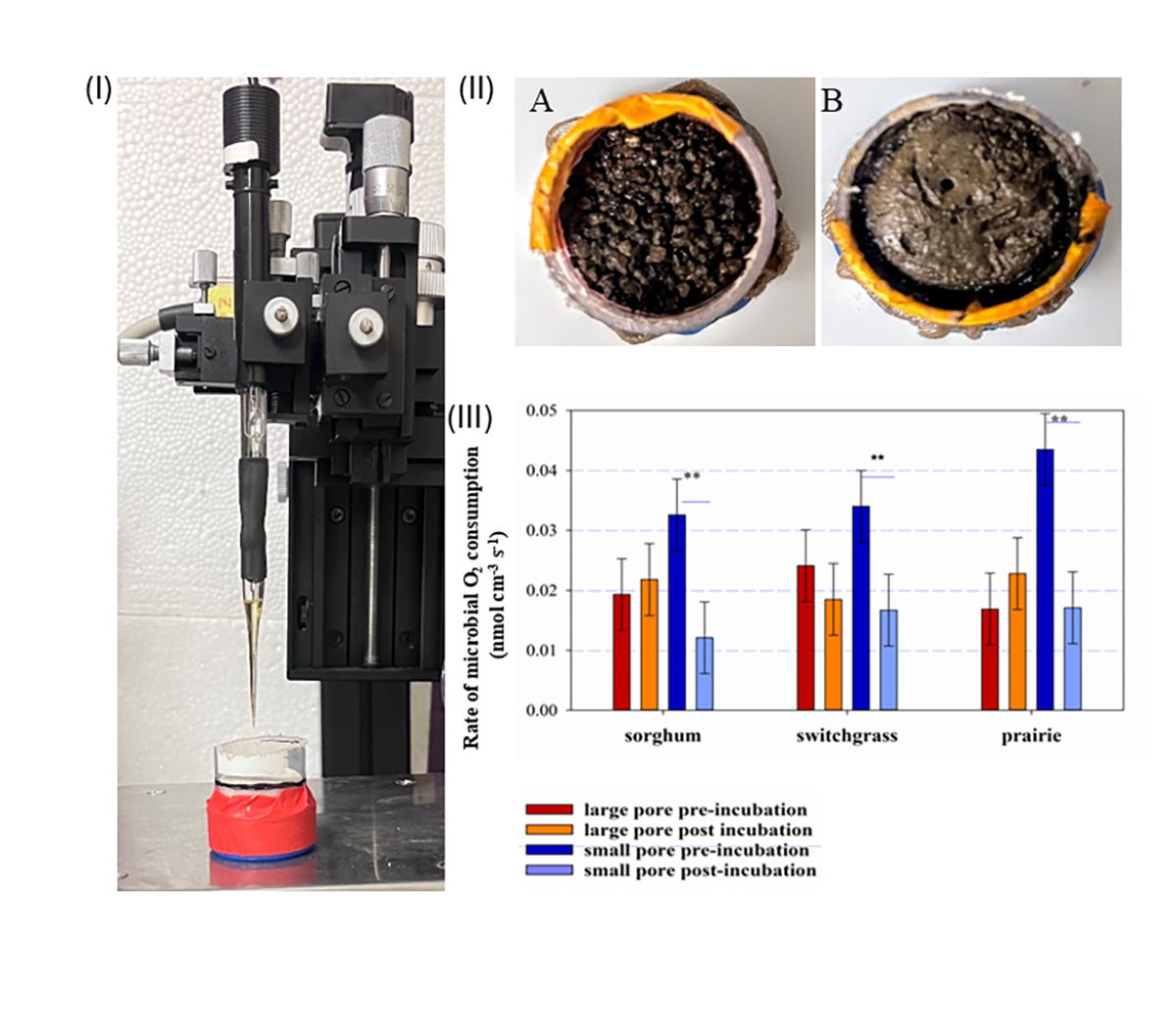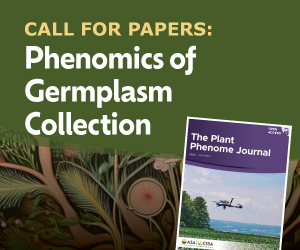Microbial oxygen consumption is influenced by soil pore structure

Since heterotrophic soil microbes use oxygen (O2) as an electron acceptor, microscale O2 availability influences microbial contributions to soil carbon and nitrogen cycles. The soil O2 availability is determined by the O2 diffusion from the atmosphere and microbial O2 consumption in the soil. Pore structure is a well understood driver of O2 diffusion. But does pore structure also affect microbial O2 consumption?
To answer this question, researchers from the Great Lake Bioenergy Research Center at Michigan State University collected soil from three bioenergy cropping systems to create soil environments with two contrasting pore structures, i.e., large vs. small soil pores, of >30 µm and <10 µm diameters, respectively. They used O2 microsensors to measure O2 profiles and calculated microbial O2 consumption using the finite difference method for solving Fick’s Second Law of Diffusion at a steady state.
The researchers found that microbial O2 consumption is indeed impacted by the pore structure. In the large-pore soil, O2 consumption was stable while it rapidly decreased in the small-pore soil after 38 days of incubation. The study suggests that large-pore soil provides a better physical microenvironment for soil microbes while the O2 limitation in small-pore soil might, in the long-term, contribute to changes in their metabolism.
Dig deeper
Chakraborty, P., Guber, A., & Kravchenko, A. (2025). Microbial O2 consumption as a function of pore structure in soils of sorghum, switchgrass, and prairie vegetation systems. Vadose Zone Journal, 24, e70001. https://doi.org/10.1002/vzj2.70001
Text © . The authors. CC BY-NC-ND 4.0. Except where otherwise noted, images are subject to copyright. Any reuse without express permission from the copyright owner is prohibited.








